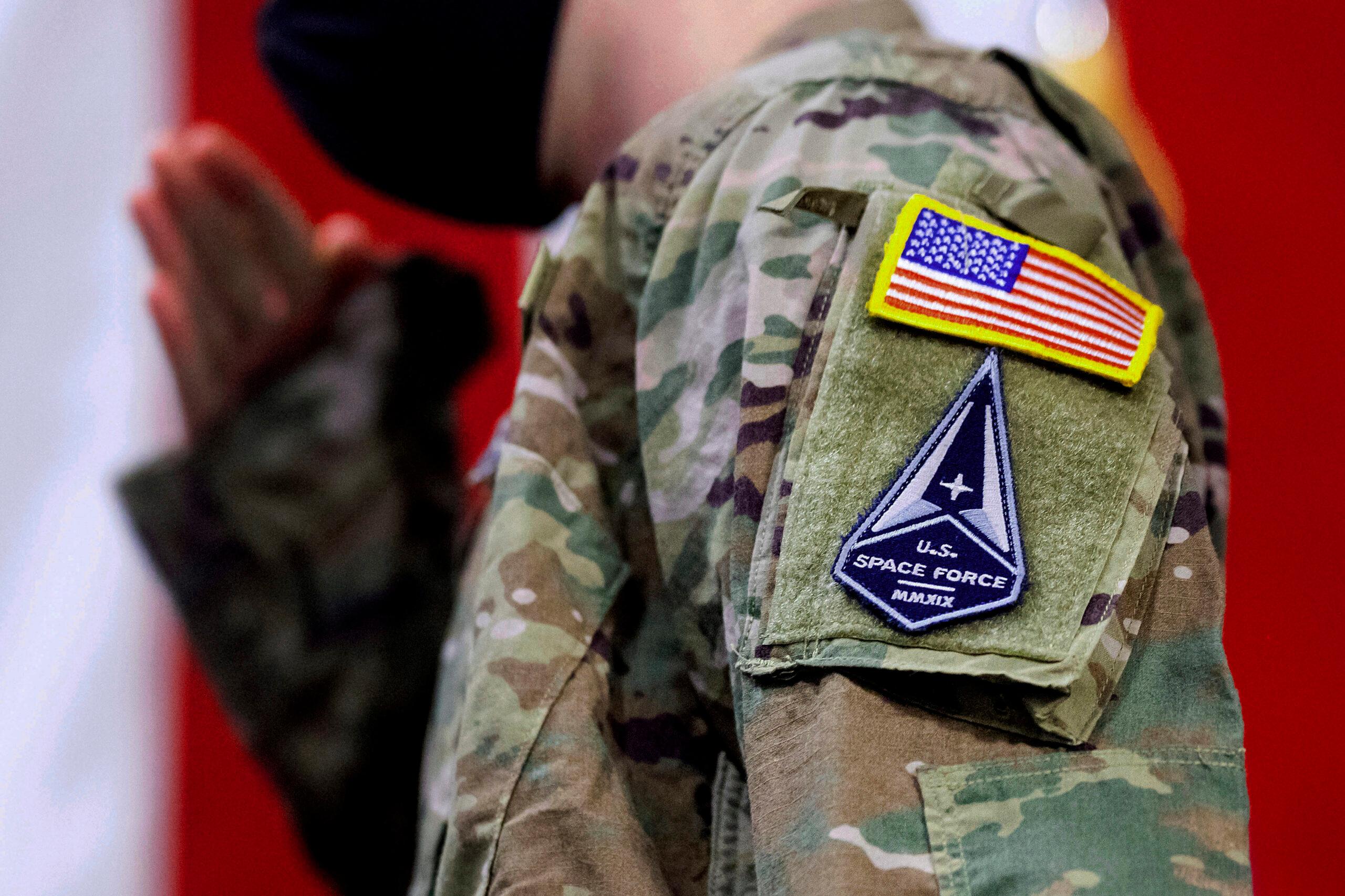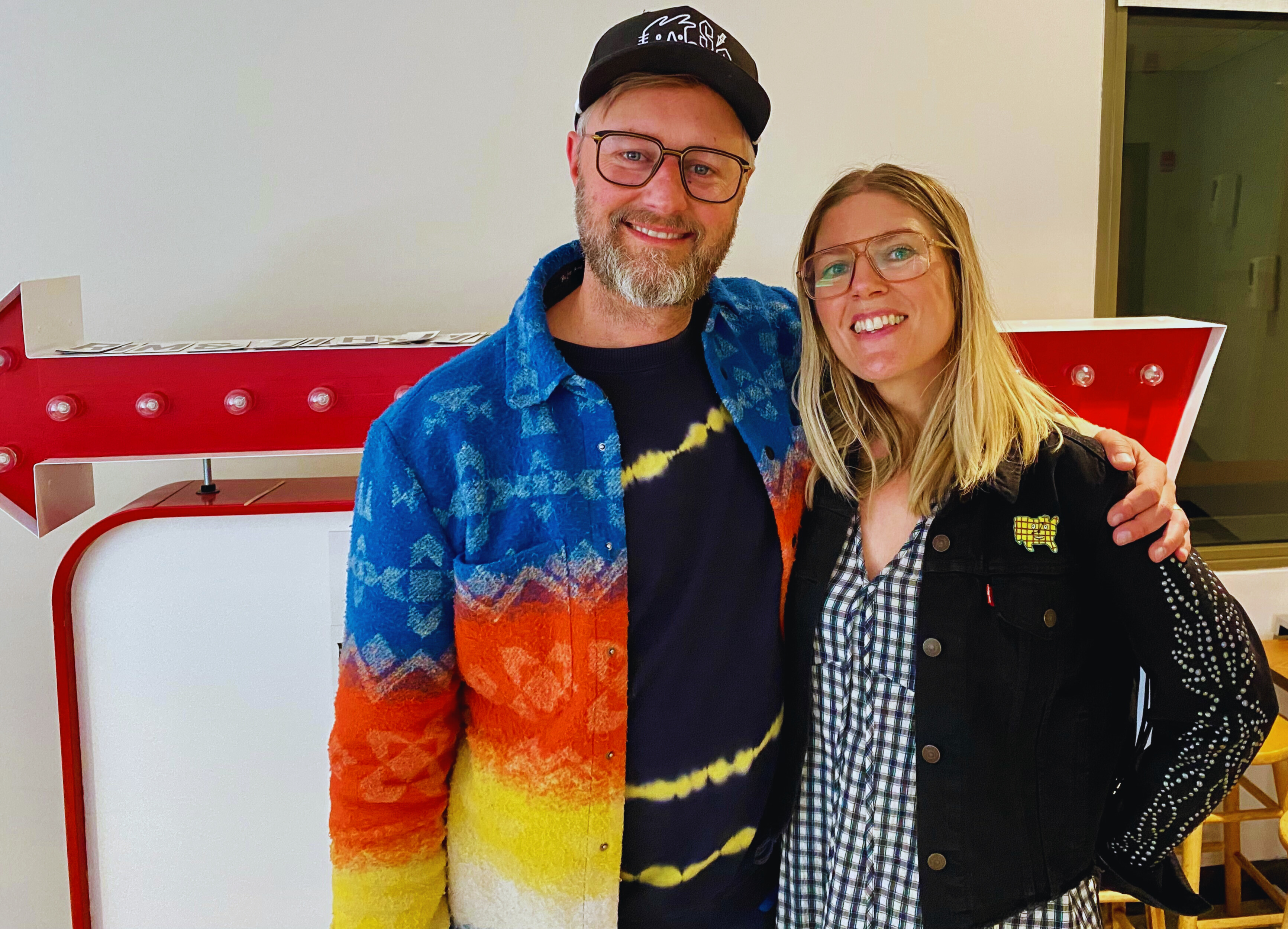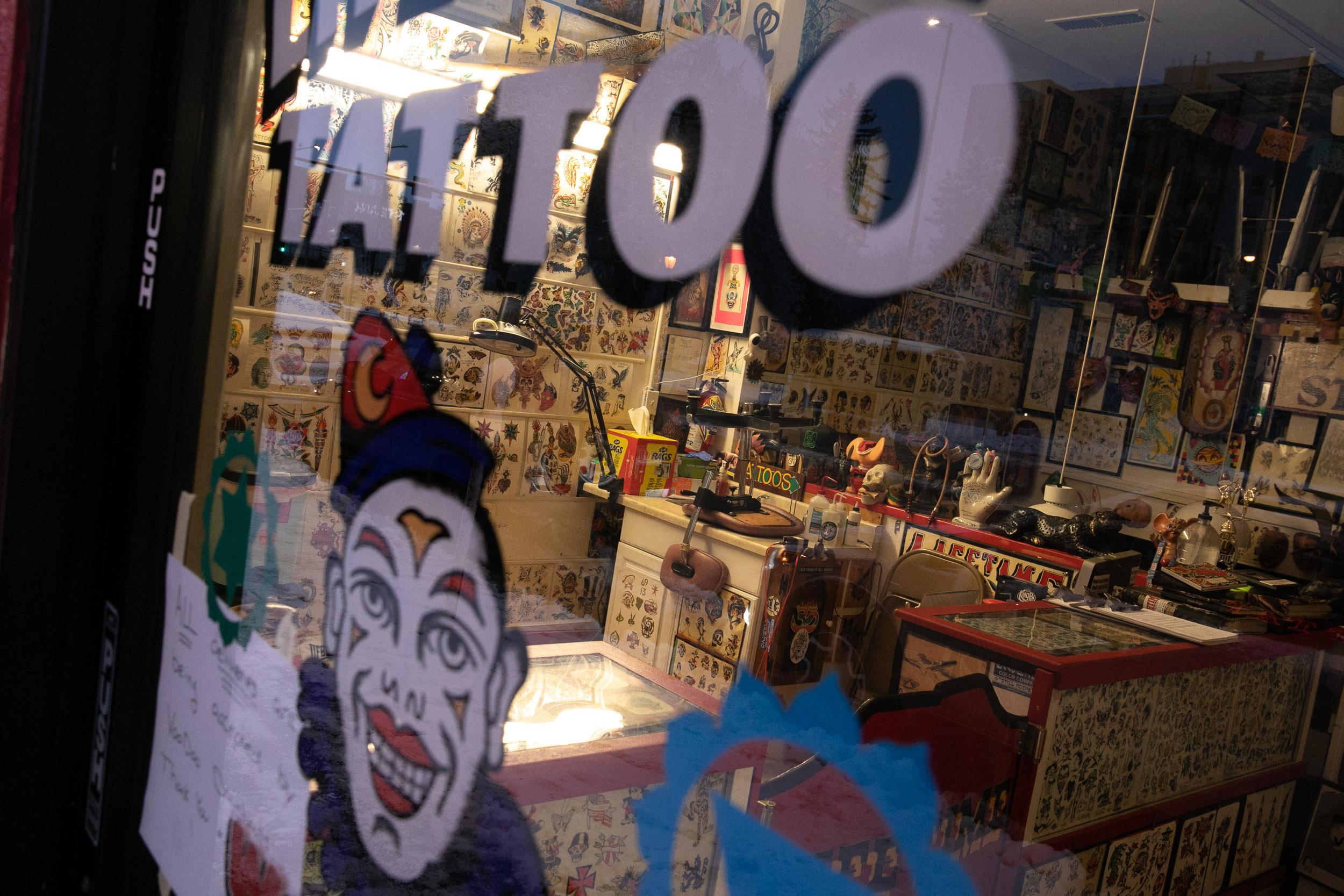
It was an awkward day for Kevin Seawell and his fellow Denver tattoo artists when they were told they couldn’t tattoo anymore.
“It felt empty that entire day,” Seawell said. “Because this is what we've all been doing and expected to do for, I know for me and a lot of others, it's the rest of our lives. Like, there's no retirement plan. There's no stopping tattooing. You stop when you're dead.”
The state ordered tattoo shops like Seawell’s End of Days, along with salons and spas, to close March 19 because of the coronavirus pandemic. As soon as Seawell knew he’d be out of a job for the near future, he sought out financial assistance with the Colorado Artist Relief Fund.
The fund is a collaboration between arts organizations at state, regional and local levels.
While Seawell waited on his application, he got a job at his neighborhood King Soopers stocking online orders. He said the supermarket hired him right on the spot and didn’t even ask for references.
“And then they threw me in and I realized why they needed me now,” he said.
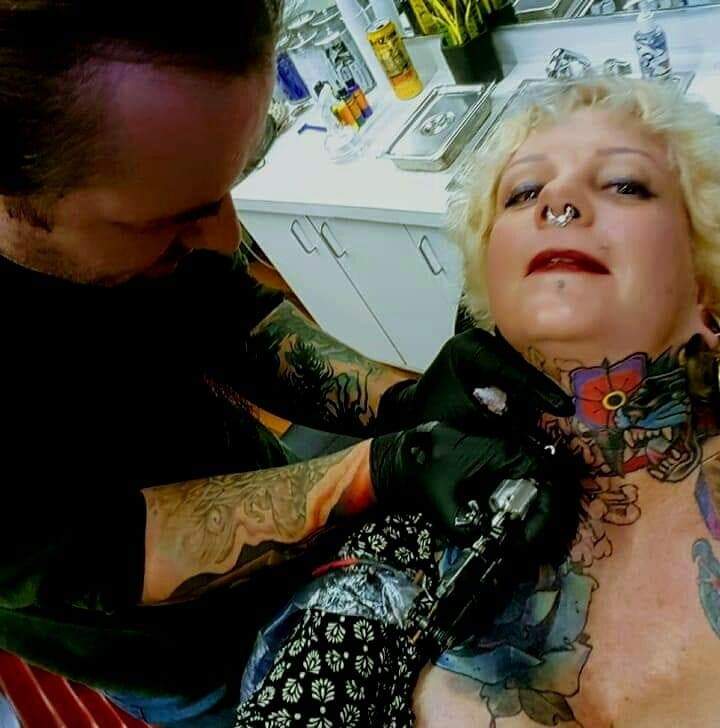
Shortly after, he got that awaited email from the Colorado Artist Relief Fund. He’d qualified for the maximum amount: $1,000. Good news, but he hit reply and typed this out instead:
“I ended up finding a job at a King Soopers, so I am doing just fine. I'm assuming there are others that applied that need it more than me. Thank you though :)."
Tariana Navas-Nieves, the director of cultural affairs for Denver Arts & Venues, was on the receiving end of that email.
“I get goosebumps,” she said. “If that is not just a reflection of empathy and generosity.”
Before Denver Arts & Venues joined forces with other relief efforts, they had repurposed grant money to make the Imagine 2020 Artist Assistance Fund. She said they were one of the first agencies in the country to have an emergency fund for artists.
In less than 12 hours, she said they received 295 applications. Denver Arts & Venues found that 68 percent of the applicants reported no other source of income.
Navas-Nieves thought they would need to expand, so she called up her friend, Louise Martorano, executive director of the RedLine art center. RedLine had surveyed the impact COVID-19 was having on artists’ livelihoods. One survey showed that in the next 30 to 60 days, artists expected an average income loss of $3,500.
The two organizations, along with Colorado Creative Industries, pooled their money to make the Colorado Artist Relief Fund. Now artists all across the state could apply for aid.
That included Matt Goss, owner of the Uncanny Valley art gallery in Grand Junction. The gallery leans in hard on putting the artist first.
“I often tell them if they're brave enough to make it, I'm brave enough to show it for them,” Goss said. “Then on top of that, we're completely commission-free, which means we give the artists 100 percent of all the sales they make.”
Uncanny Valley was set to celebrate its five year anniversary in April, but in accordance with Gov. Jared Polis’ stay-at-home order, Goss closed the gallery in late March. He’s applied for assistance where he can and set up a GoFundMe page to bring a little relief to his business and his artist members.
“Right now we're just scrambling,” he said. “Any relief I get for the gallery would be passed directly onto the members. Just help with their member dues to ease the burden on them. Because right now we're just trying to survive this.”
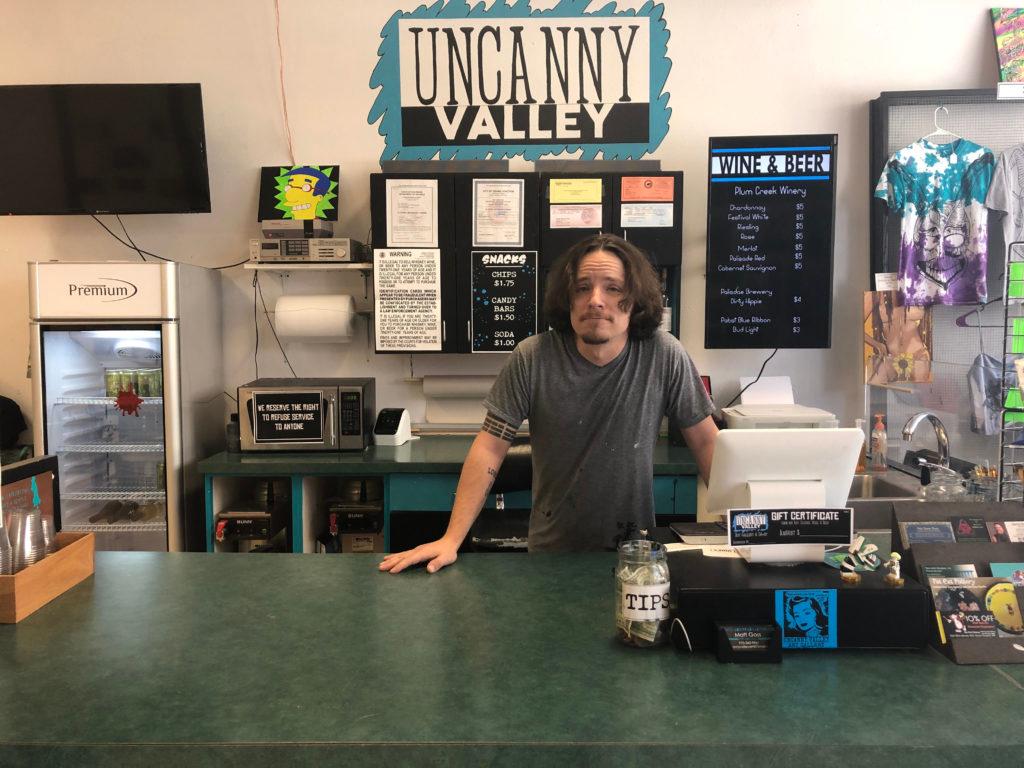
In their surveys, RedLine estimated that there is a $187,000 need in rural and non-metro area counties.
“The arts bring people together,” Martorano said. “And suddenly no one can gather and therefore, their livelihood is demolished in the process.”
The total amount of claims from individual artists across Colorado is close to $1 million, Martorano added. The Colorado Artist Relief Fund falls short of that goal. As of Tuesday, 570 applications were being processed, but currently the fund only has enough money to fill less than half. About a week after the fund was opened, organizers had to take down the application because the system was inundated with requests from individual artists.
The application has since been reopened only for non-Denver Metro residents. Martorano hopes the fund can be opened again soon for everyone, but in the meantime, Denver artists can apply for grants through the Arts in Society program.
Margaret Hunt, director of Colorado Creative Industries, said the national Payroll Protection Plan is an option for artists who need help with rent, utilities, etc. The state also got $750,000 from the CARES Act that will go specifically to nonprofit arts organizations.
“As soon as we draw down that federal funding, we're required to get it out the door in 30 days, so it's going to be a really fast turnaround,” Hunt said. “We're going to provide grants of $5,000 to small and medium-sized organizations statewide that have budgets of $1 million or less because we think those are the organizations that are the most vulnerable.”
There’s a limited window to get money to the vulnerable and Hunt worried it might already be too late for some, like Trinidad’s Southern Colorado Repertory Theatre.

When COVID-19 precautions started across Colorado, SCRT decided it would be best to stop rehearsals for their upcoming production of the Broadway comedy, “Social Security.”
“At one point we had a May 15th as a possible reopening,” said Gloria Hall, president of SCRT’s board. “We've now pushed it out and notified our patrons that we hope to be in production again in September, hopefully.”
During this extended closure, Hall said they’ve had to lay off the majority of the theatre’s staff including the executive and artistic directors. She isn’t sure what the long-term economic impacts will be for the theatre. And that uncertainty seems to resonate across the board.
If you ask Tariana Navas-Nieves how long the road to recovery could be for Denver’s arts, she’ll tell you she has, “no idea how to answer that.”
There’s a domino effect happening. As existing grants and donations are repurposed as relief aid that cuts into the philanthropy dollars organizations count on year round. Making that road to recovery even longer.
But Navas-Nieves sees hope in organizations big and small coming together to not only support struggling artists, but to also help in the fight against COVID-19 with things like mask programs.
“We've seen artists continue to create and inspire even though they are in pain, they are struggling,” she said. “So now is the time to really show up. And it's definitely been really inspiring and heartbreaking at the same time.”

